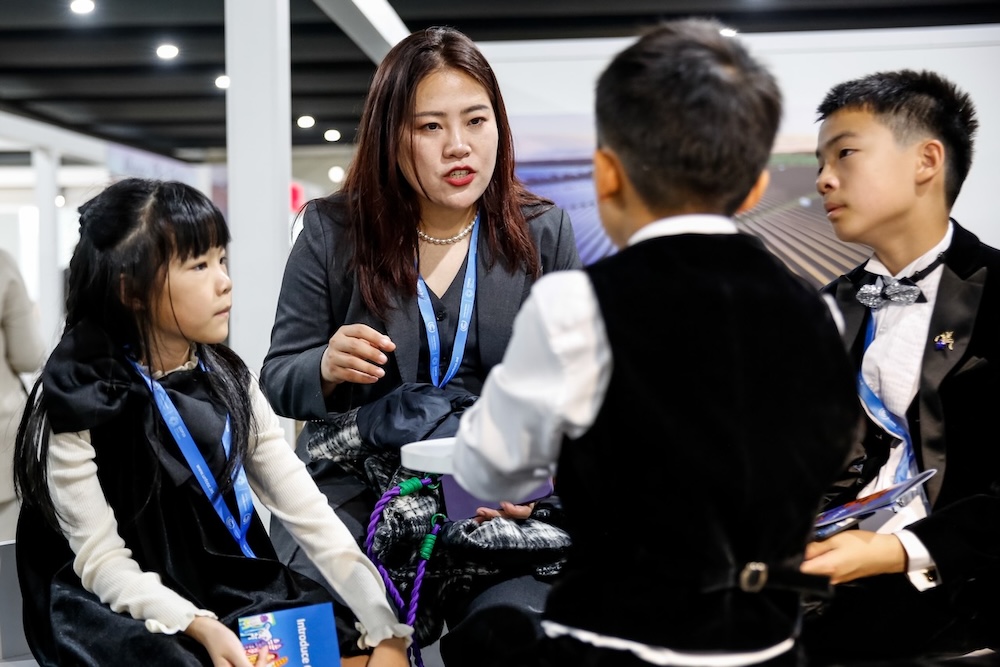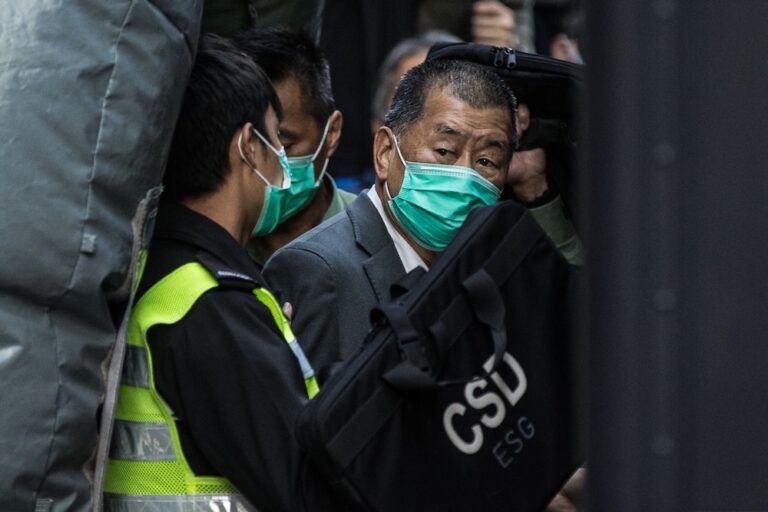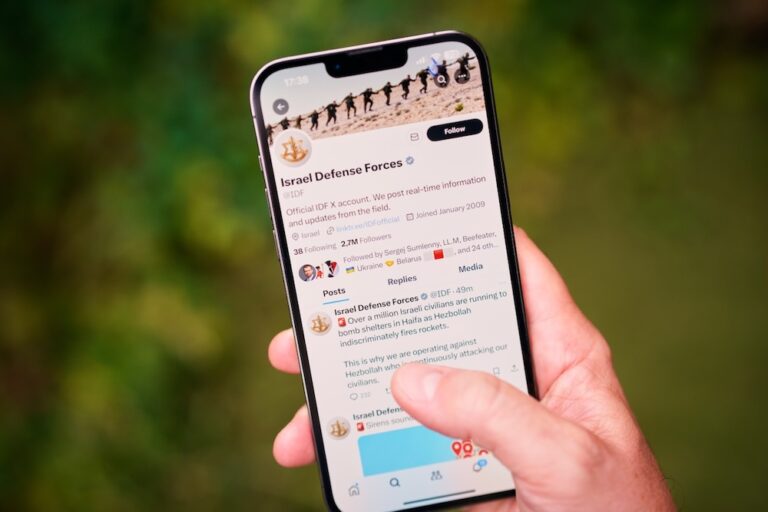"After two weeks of furious negotiations, the climate summit concluded with a new finance goal that fails those most affected by the climate crisis, including children."
This statement was originally published on home.crin.org on 28 November 2024.
After two weeks of furious negotiations, COP29 concluded in Azerbaijan with a new finance goal that fails those most affected by the climate crisis, including children. In this piece, we break down this COP’s key outcomes, and its controversies and emphasise the intersections of climate justice and human rights.
On Sunday 24 November, COP29, the UN climate summit in Baku, finally wrapped. After two weeks of furious negotiations, the climate summit concluded with a new finance goal that fails those most affected by the climate crisis, including children.
There was much controversy about where COP was held this year and a sense of both disappointment and outrage on the slow pace of progress of global policies fuelling our planet’s rapid warming. But what are the key outcomes from this COP – and what do they mean for children? And what was the context that this COP was held under – why was there controversy – and what did it mean for civic space, freedom of expression and climate justice?
What is COP?
COP is the Conference of Parties, which is the decision-making body of the United Nations Framework Convention on Climate Change (UNFCCC) that includes all countries that have agreed to participate in and be bound by the UNFCCC. The COP meets every year. The first one was held in 1995, with the Presidency (the term for the host country, with the President typically being a senior level country representative) rotating every year between the five UN recognised regions (Africa, Asia, Latin America and the Caribbean, Central and Eastern Europe and Western Europe and Others). These conferences are meant to serve as an opportunity for countries to review progress on responding to climate change and to negotiate new measures.
In recent years, the number of people attending COP has significantly increased – starting from just over 2,000 at COP1 in 1995 to over 85,000 at COP28 in Dubai. These numbers are startling for a climate conference.
Where was this COP held and why does it matter?
This year COP was held in Baku, Azerbaijan – an authoritarian petrostate with a record of human rights abuses and a crackdown on free speech and civil society. This crackdown was evident in the lead up to and during COP with severe domestic repression in Azerbaijan and increased restrictions to free speech within the UNFCCC.
There is no climate justice without human rights – and both require an open civic space. The rights to freedom of expression, association and peaceful assembly must be fully respected in these discussions. Without the free flow of information and the potential to organise, the ability to respond to the existential threat of climate breakdown is severely curtailed. It is a serious failure that COPs continue to be held in countries where activists fear speaking out would bring risks to themselves or their peers. This is unacceptable for a UN conference. For these reasons and others, CRIN has sat out the past two COPs and questioned whether we needed to limit what we said before and during them.
Many voices defied these risks, however, and called for an open civic space in Azerbaijan and against the repression and threats that civil society face there (see for example the Climate Observers Partnership, which was co-founded by Azerbaijani human rights defender Emin Huseynov, and also this letter to Azerbaijan’s President from the Council of Europe’s Commissioner for Human Rights).
Beyond the repression of civil society, Azerbaijan’s links with the fossil fuel industry should have ruled it out of hosting a climate conference. There were at least 1,773 fossil fuel lobbyists at COP this year. And when the President of a host country opens a climate conference by saying that oil and gas are a “gift of God”, we can be left in no doubt about how dire the situation at COP has become.
What are the headlines and what do they mean for children’s rights?
-
-
The biggest outcome from COP29 (referred to as the ‘climate finance COP’) relates to the new climate finance goal (funding for activities focused on adapting or mitigating the impacts of climate change), one which could arguably do more harm than good. Developing countries wanted USD 1.3 trillion a year in climate finance, but ended up with USD 300 billion per year until 2035 (with 1.3 trillion remaining as a goal from public and private sources). This is nowhere near enough for developing countries and vulnerable populations who have contributed the least to climate change but have been – and will be – suffering the most to address these harms. If this year’s Presidency considers oil and gas to be a “gift”, then it’s the world’s most vulnerable who continue to pay its price.
This USD 300 billion figure also stands in stark contrast to the amounts governments are spending on conflicts around the world – and we know that the cost of inaction is and will be much higher. Fossil fuel companies should also be made to pay into this fund. Many felt the process itself was unfair, with the gavel coming down on the final decision prematurely before some countries were able to make their dissenting statements, leading to an erosion of trust.
-
Also disappointing were COP’s debates on gender. The Vatican aligned with Saudi Arabia, Russia, Iran and Egypt in not wanting references to “gender” in a global plan to support women in climate change over concerns that it could include transgender or gay women. While there were some positive outcomes on gender equality in COP’s negotiations, there was little recognition of the importance of intersectionality, which would help to address the multiple and intersecting forms of discrimination in climate action (including its intersections with gender).
-
While there was some inclusion of children and their rights in various negotiations, including on gender and the New Collective Quantified Goal (NCQG) these small advancements are not seen in a vacuum. Children are linked to their family’s livelihoods, to their communities’ climate actions, to their government’s transition to greener economies and to the air they breathe. It was a disappointing COP not just on children’s rights, but on the action that is needed to ensure current and future generations can live on a planet that respects and protects nature and the rights of all who inhabit it.
Is COP fit for purpose?
Given the task at hand, many have been questioning whether these COP climate conferences are delivering what is needed. Greta Thunberg argued that:
“COP meetings have proven to be greenwashing conferences that legitimise countries’ failures to ensure a livable world and future and have also allowed authoritarian regimes like Azerbaijan and the two previous hosts – the United Arab Emirates and Egypt – to continue violating human rights.”
Other leading climate policy experts like former UN climate chief Christiana Figueres, former UN secretary-general Ban Ki-moon and the former president of Ireland Mary Robinson have proposed seven key reforms to ensure that COPs “can deliver on agreed climate agreements and ensure the urgent energy transition and phase-out of fossil fuels”. These include improving the selection process for COP presidencies, amplifying the voice of authoritative science, recognising the links between poverty, inequality and planetary instability, and enhancing equitable representation.
What are CRIN’s reflections?
There is no climate justice without human rights.
Everything is connected. As Greta said: “Genocides, ecocides, famines, wars, colonialism, rising inequalities and an escalating climate collapse are all interconnected crises that reinforce each other and lead to unimaginable suffering.” We need transparent, inclusive and rights-respecting spaces if we are to make any kind of progress on climate change. COP should be that space, but it is falling short in some key (yet rectifiable) ways. COP host country agreements should be made public and must include protections for participants’ rights. And the UNFCCC should use its role to publicly call for the respect of human rights.
It’s been clear for years that we have no time to spare to protect our natural spaces (and to protect each other). We needed bolder action on environmental justice a decade ago responding to the climate and all of its interconnected crises. We need high ambition from our global leaders to tackle this existential threat. What’s also clear is that no one place is “fit for purpose” when it comes to tackling the climate crisis. Even if COP were working at its best it would not be enough to avert climate catastrophe. It can make an important contribution, but it is not enough. Politics and a lack of long-term, courageous leadership are standing in the way of delivering what is needed before critical tipping points.
Most advocates are resolute that we cannot throw in the towel – now is the time to persevere. But we also cannot be putting all of our eggs in one basket and setting all of our hopes on the climate COPs. We should also be wary of expending all of our resources on once-a-year deliberations.
This is true globally, but also for individual organisations. At CRIN, we have been examining where to focus our efforts. There might be years where we focus on COP, but we also recognise that we shouldn’t be investing so heavily in just one body. Change comes at all levels. As an NGO and also as individuals, we feel we must invest more at local, national and regional levels – and also look to other global spaces that act on environmental issues.
We want to echo the recommendations made by CRIN’s Climate Advisers, as well as other children and young people passionate about taking action in their letter to COP negotiators. We want to stand alongside the courageous voices of children and young people who are speaking out for climate justice and human rights. As we look towards COP30 in Brazil next year, we think everyone should remember their words:
“Our humanity is what can bind us together in an effort to make a better world for us all.”
-



